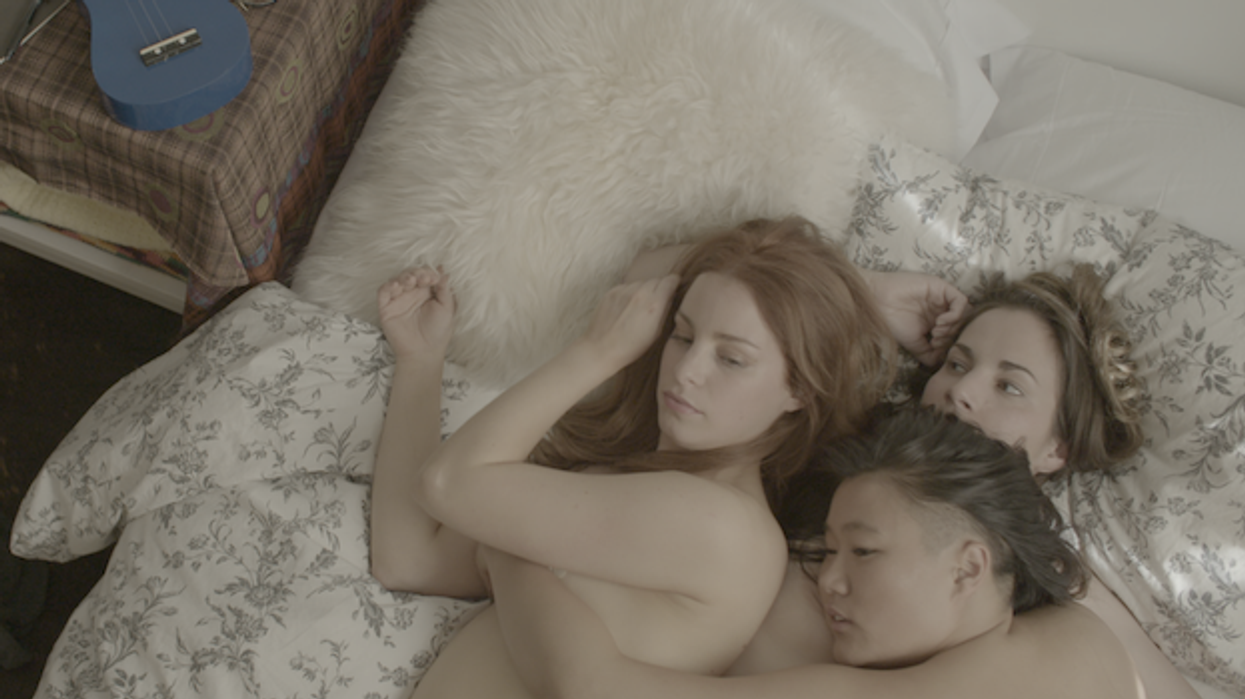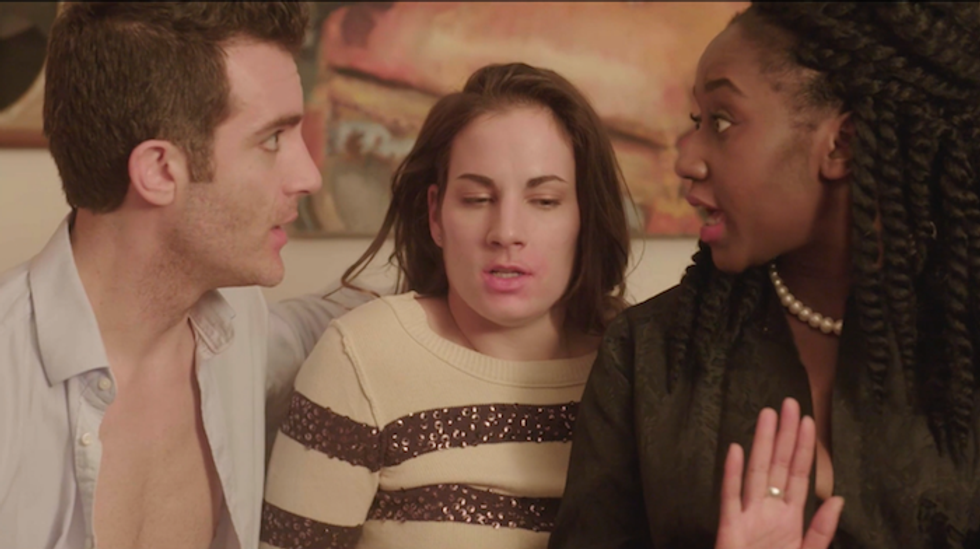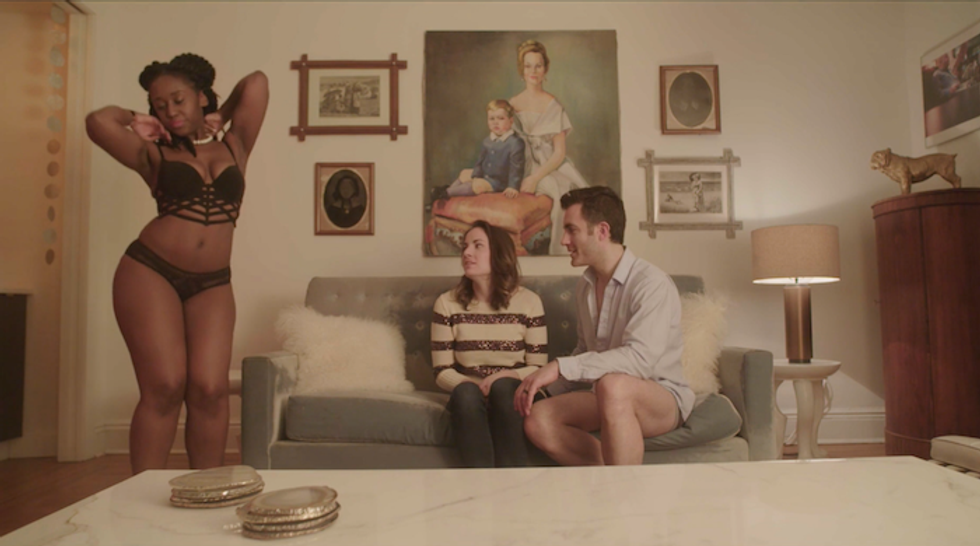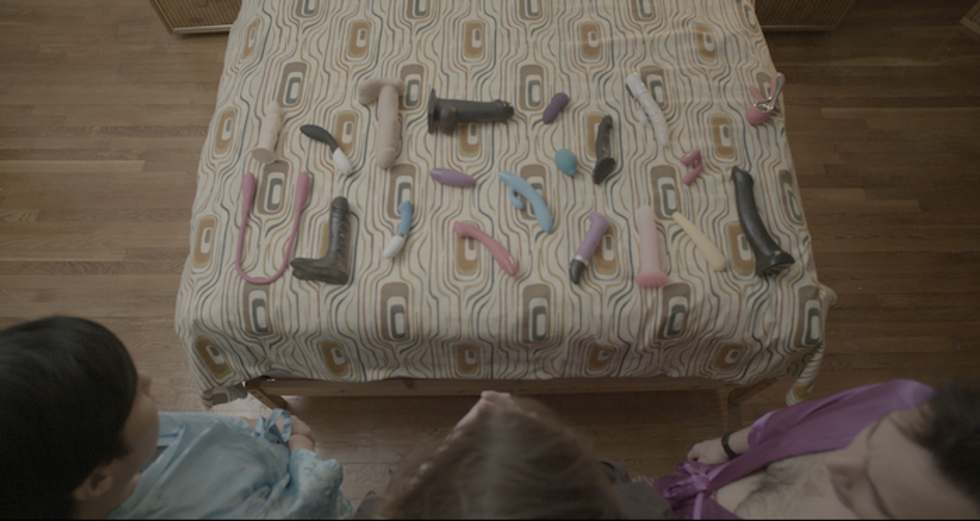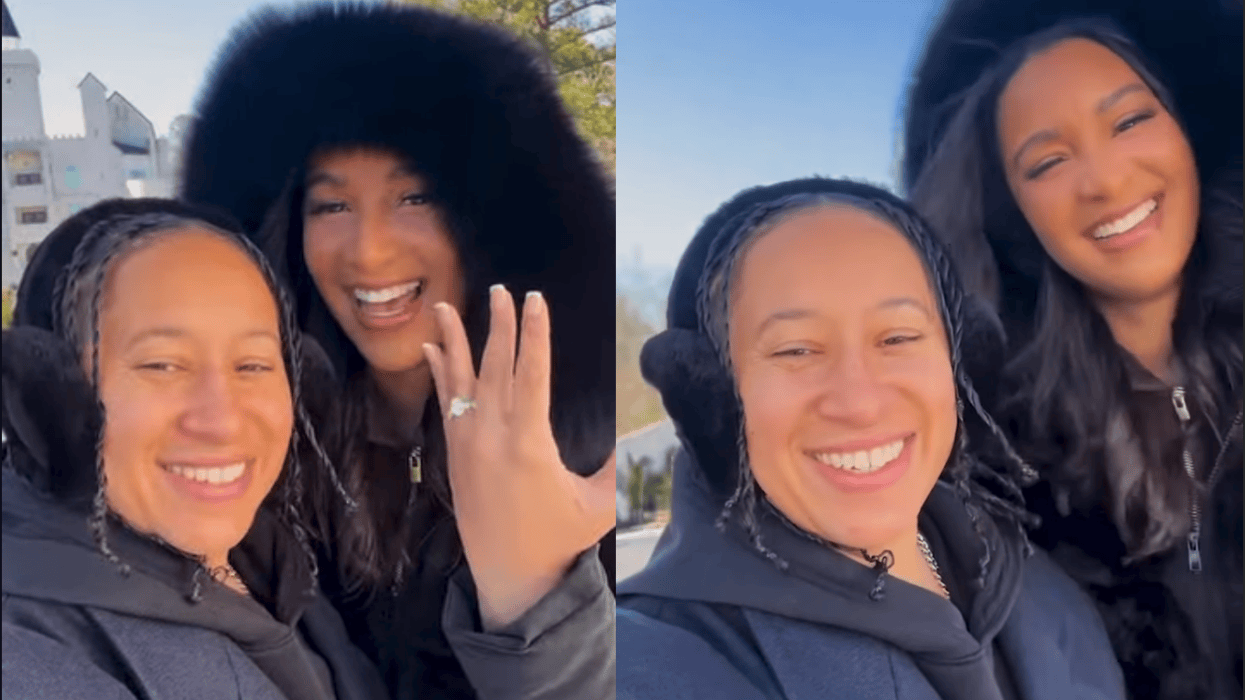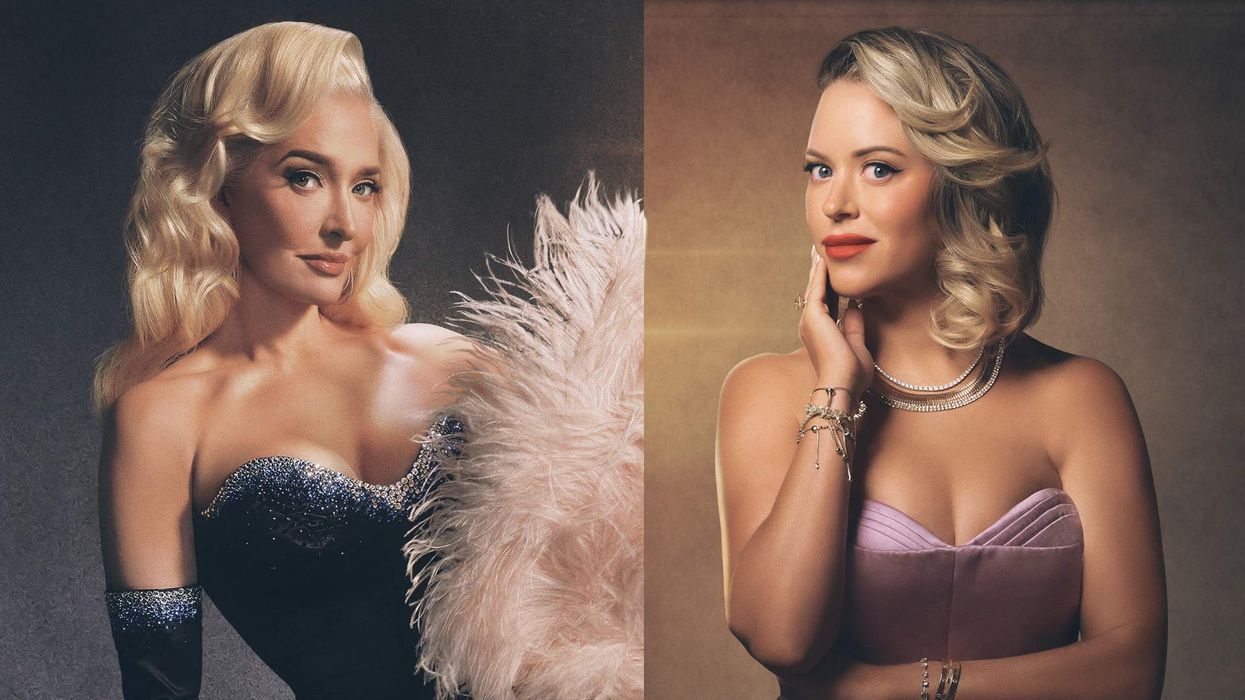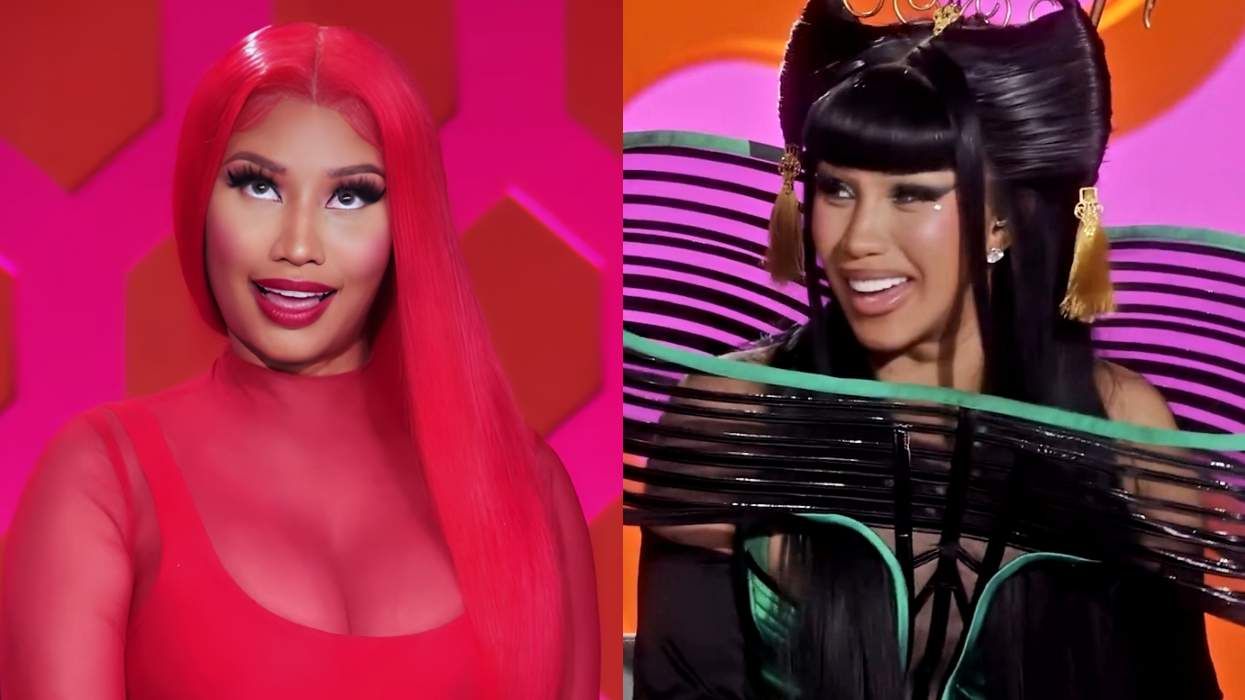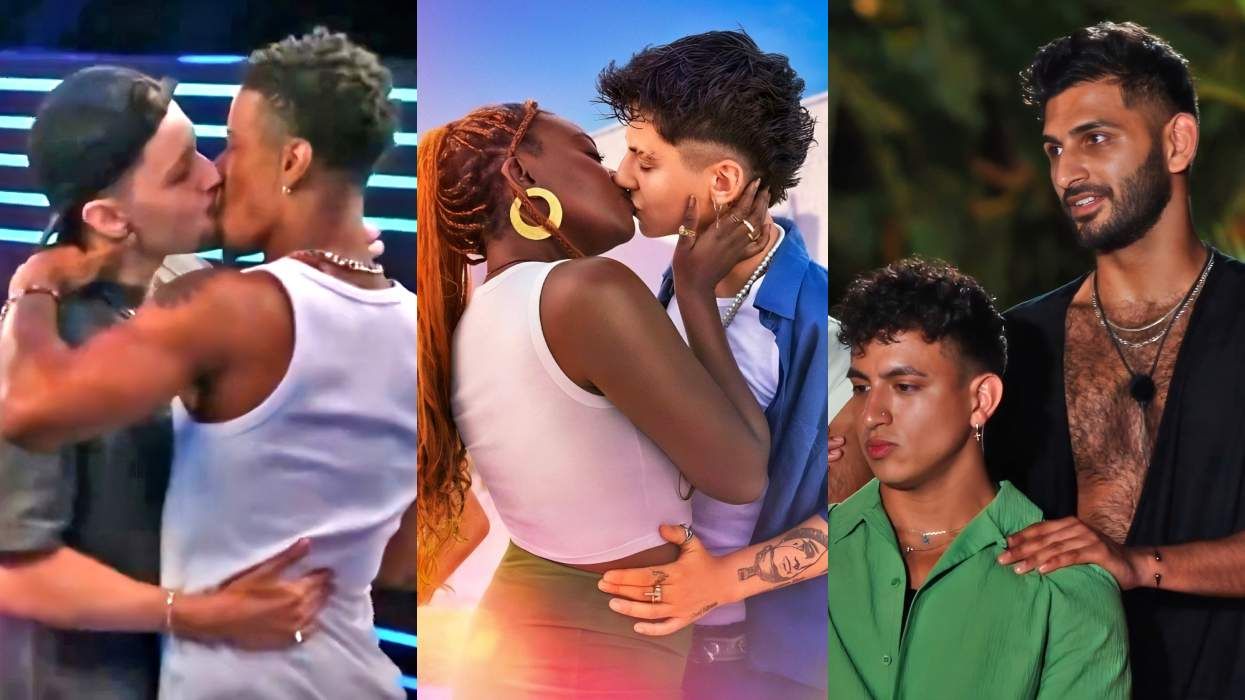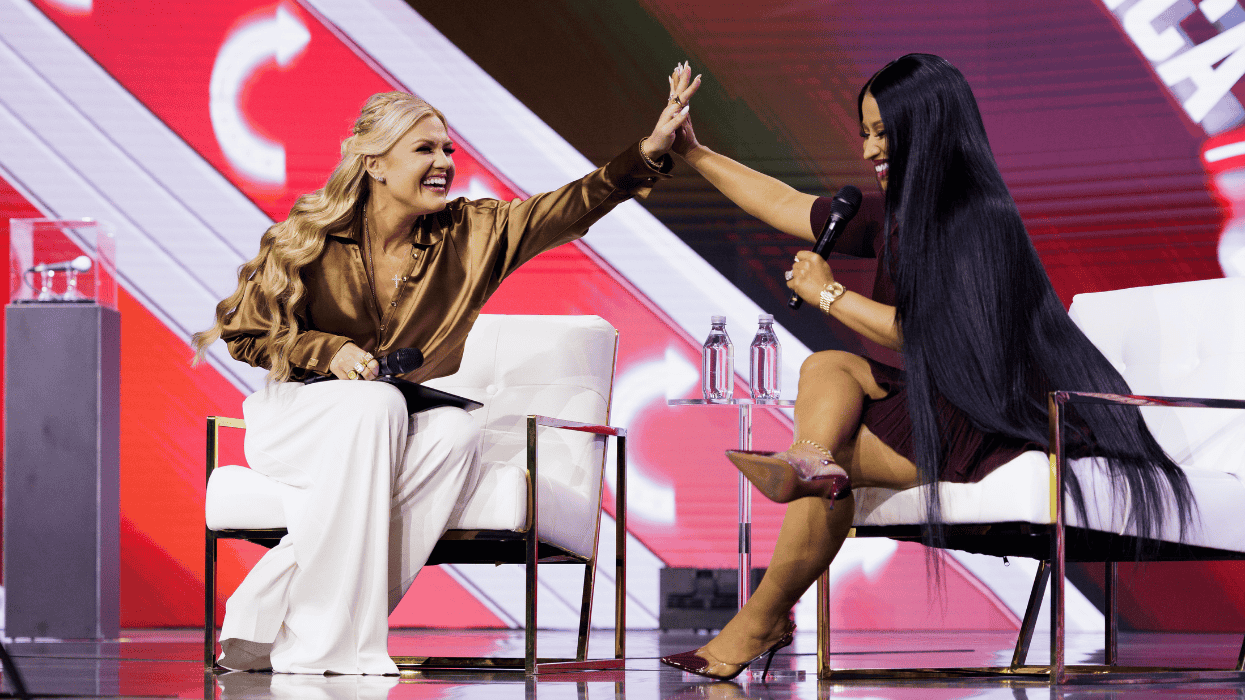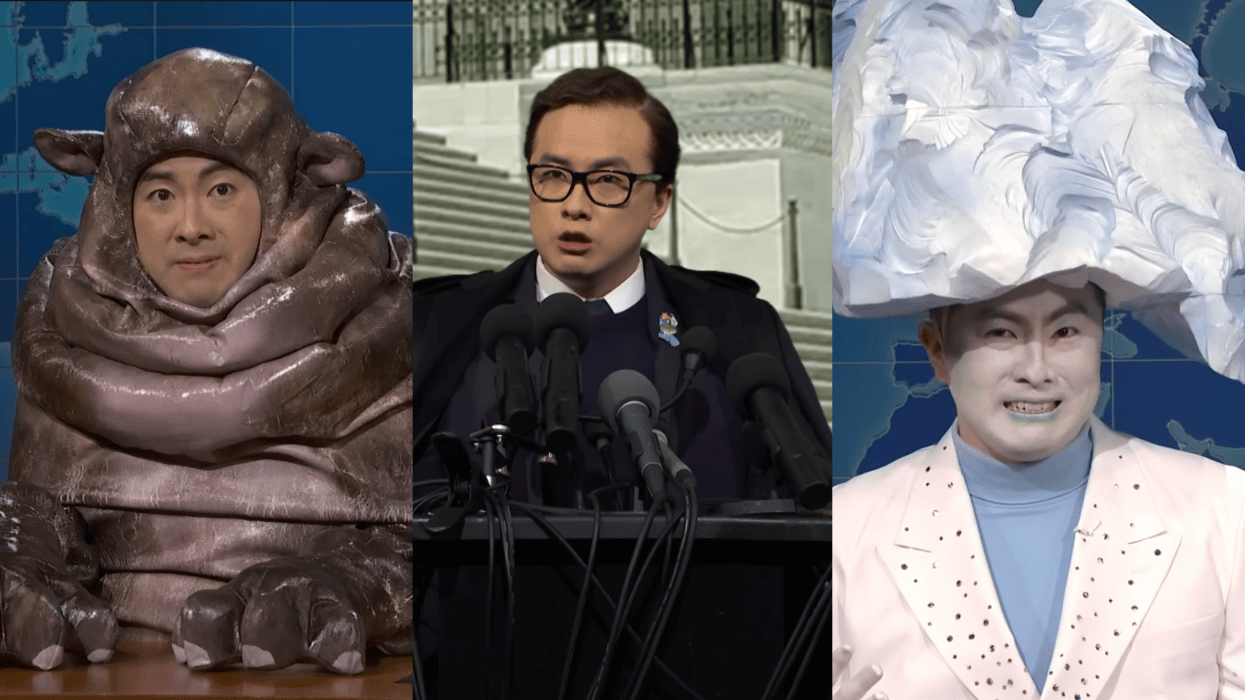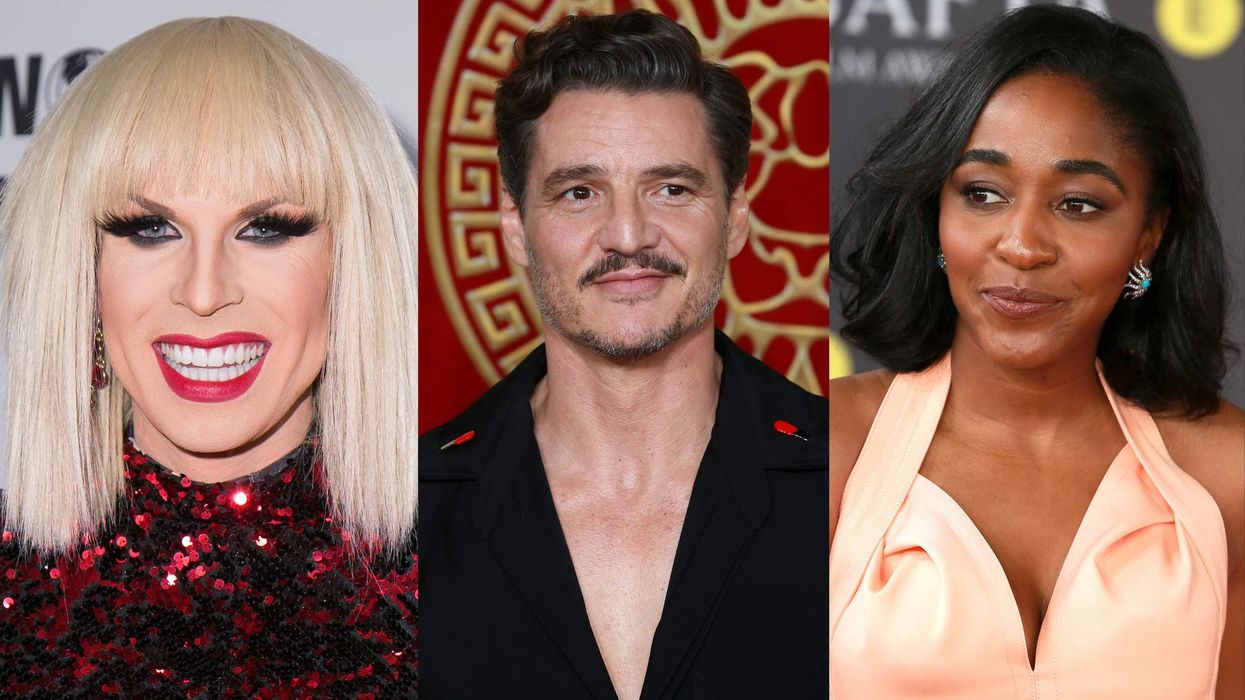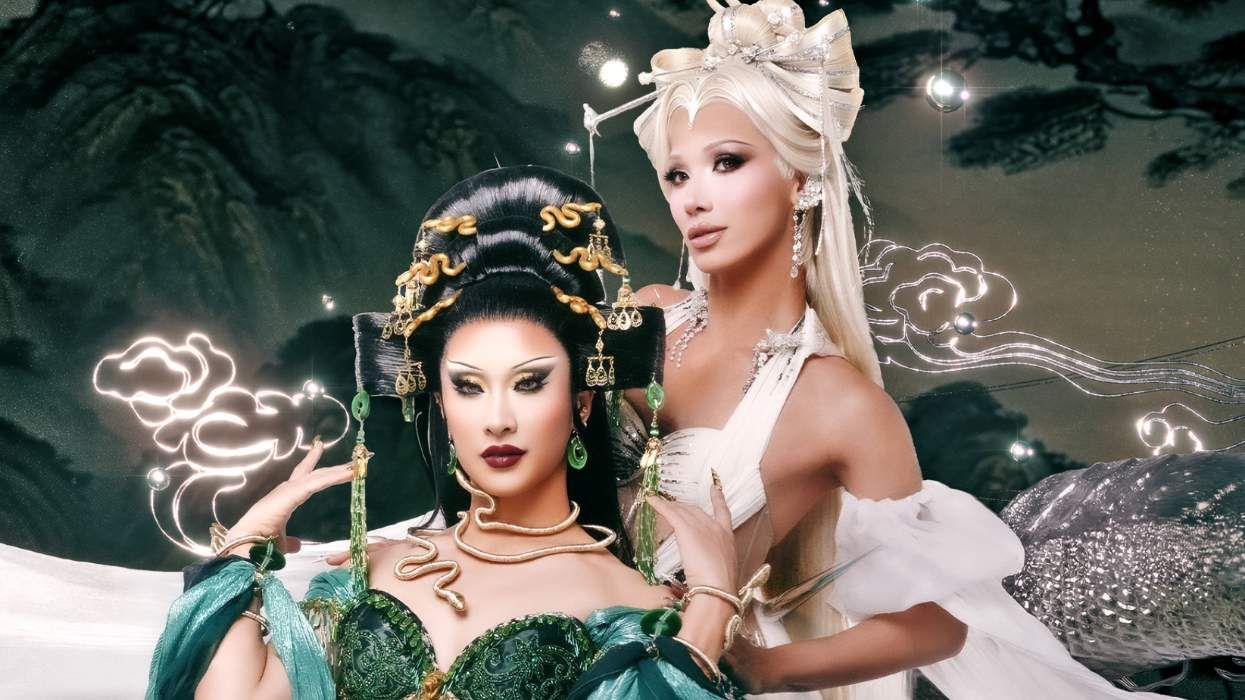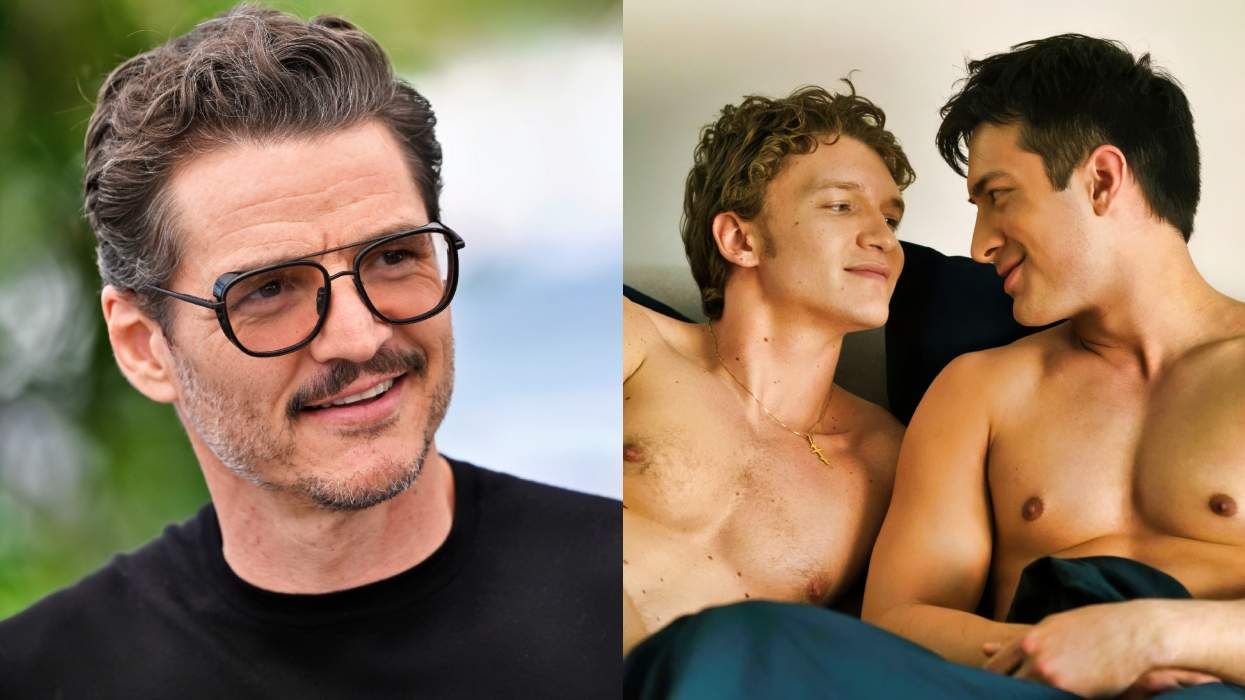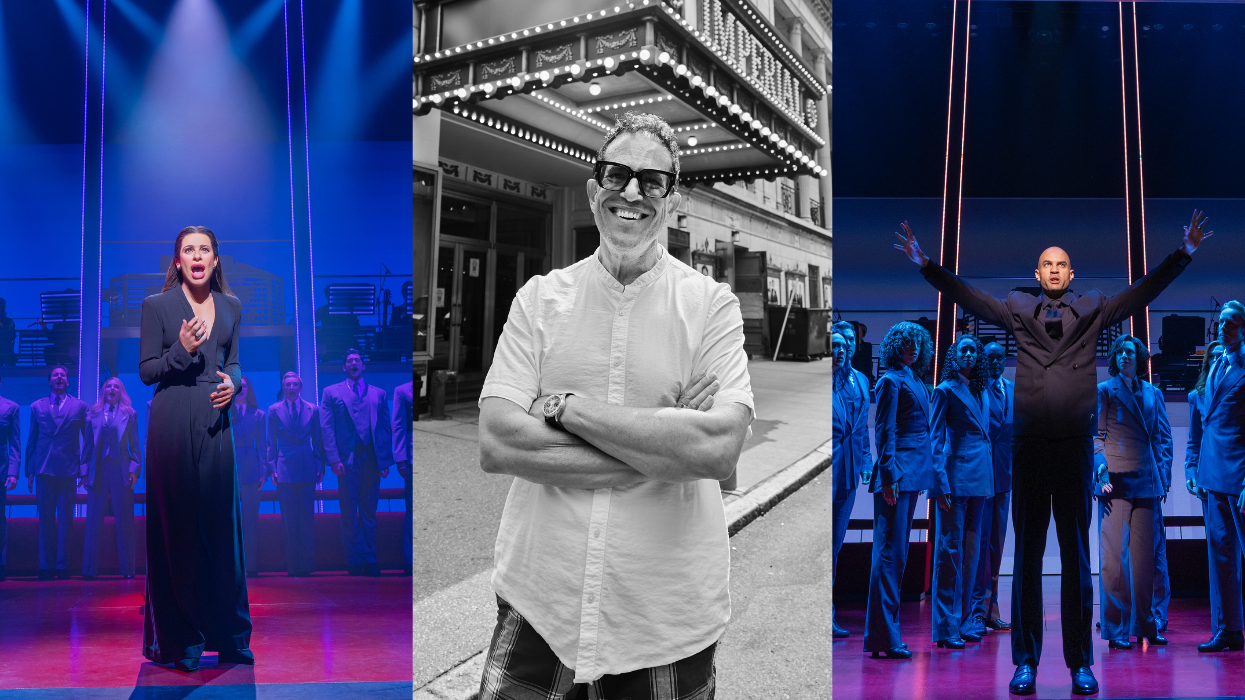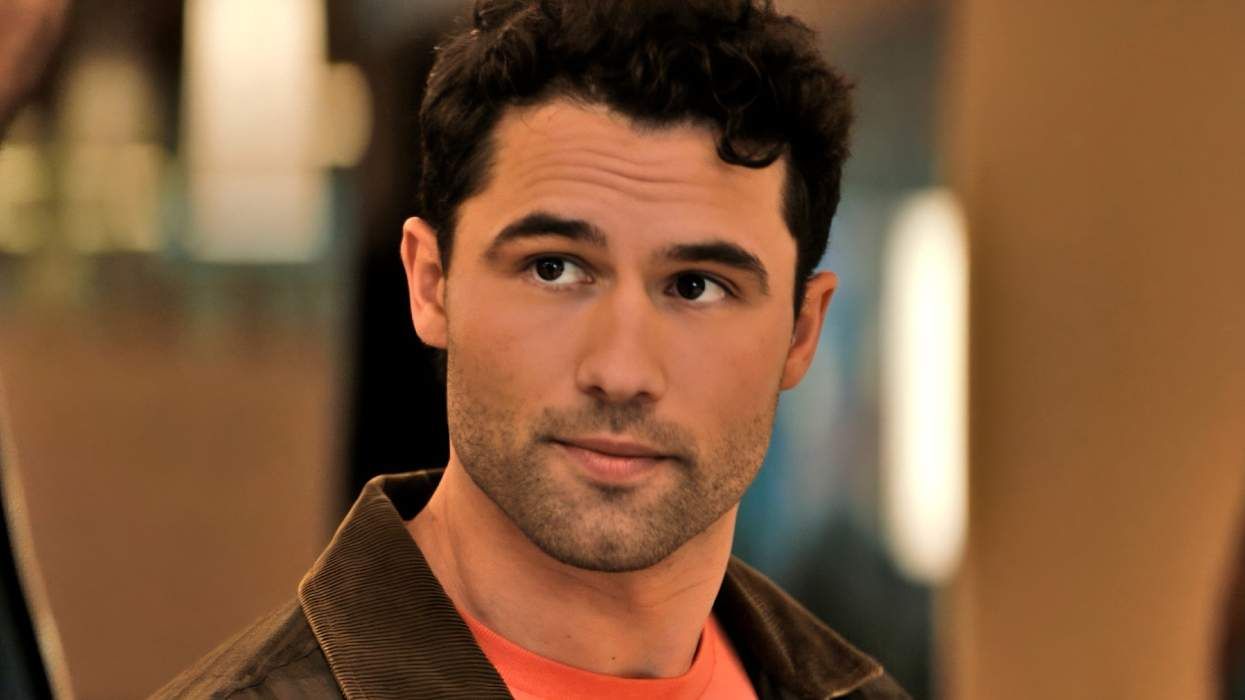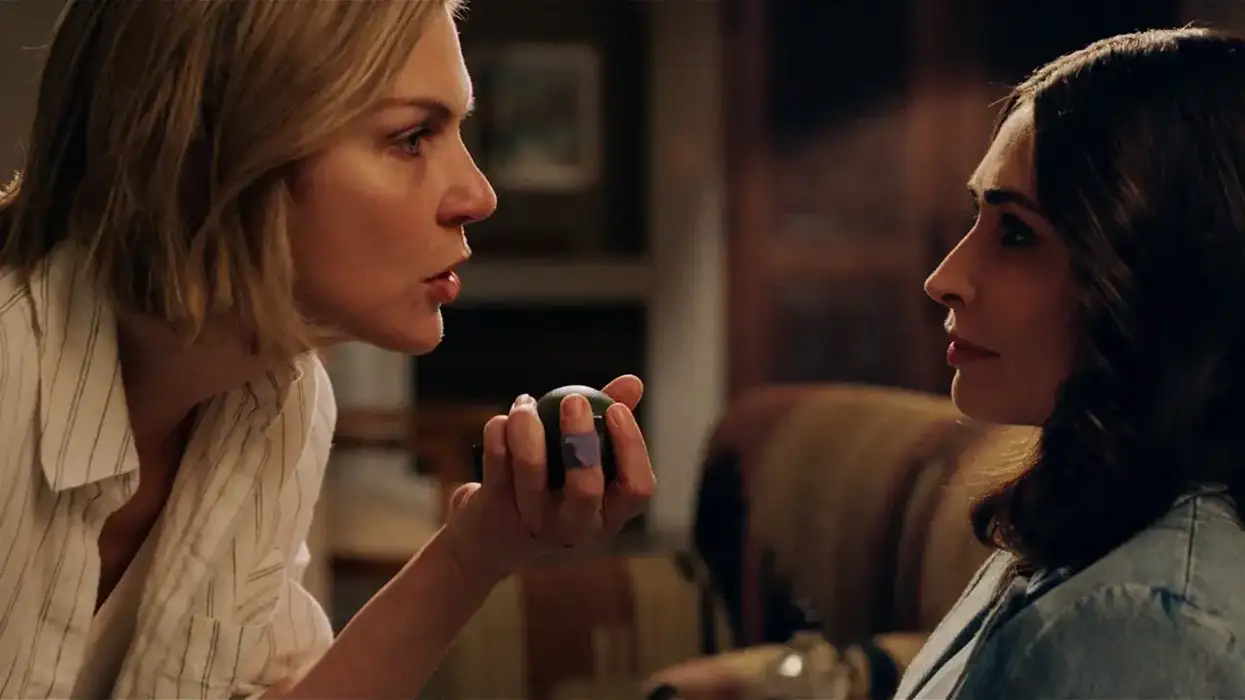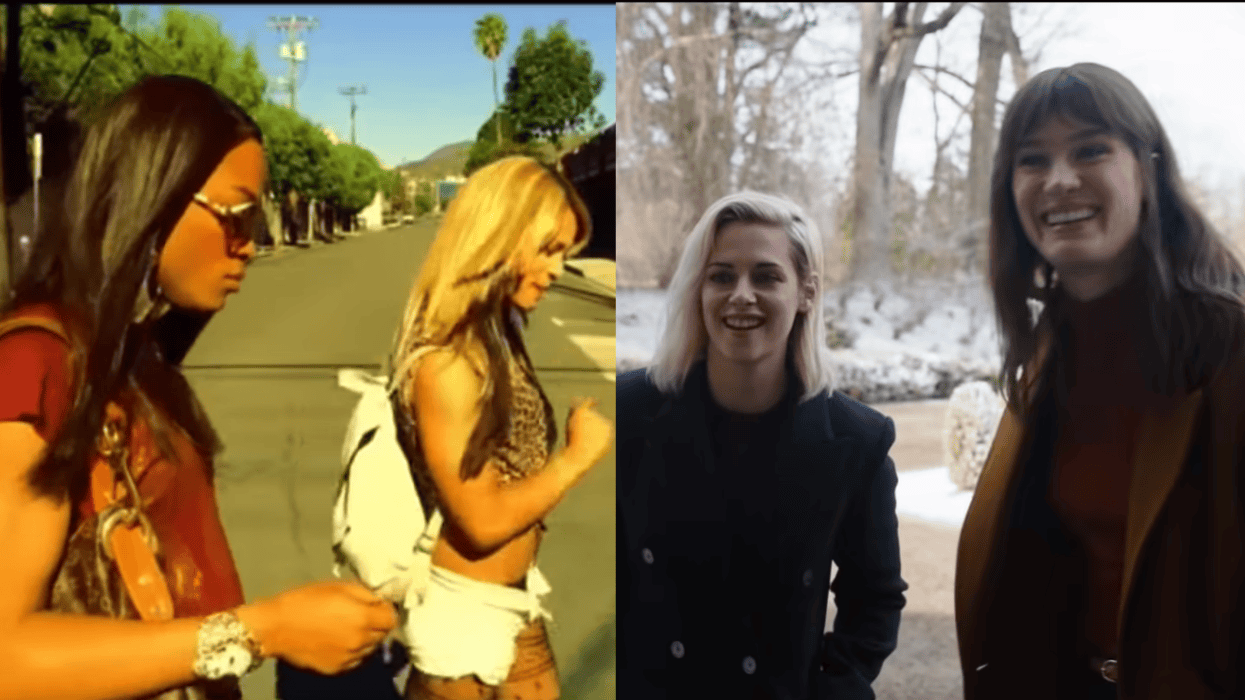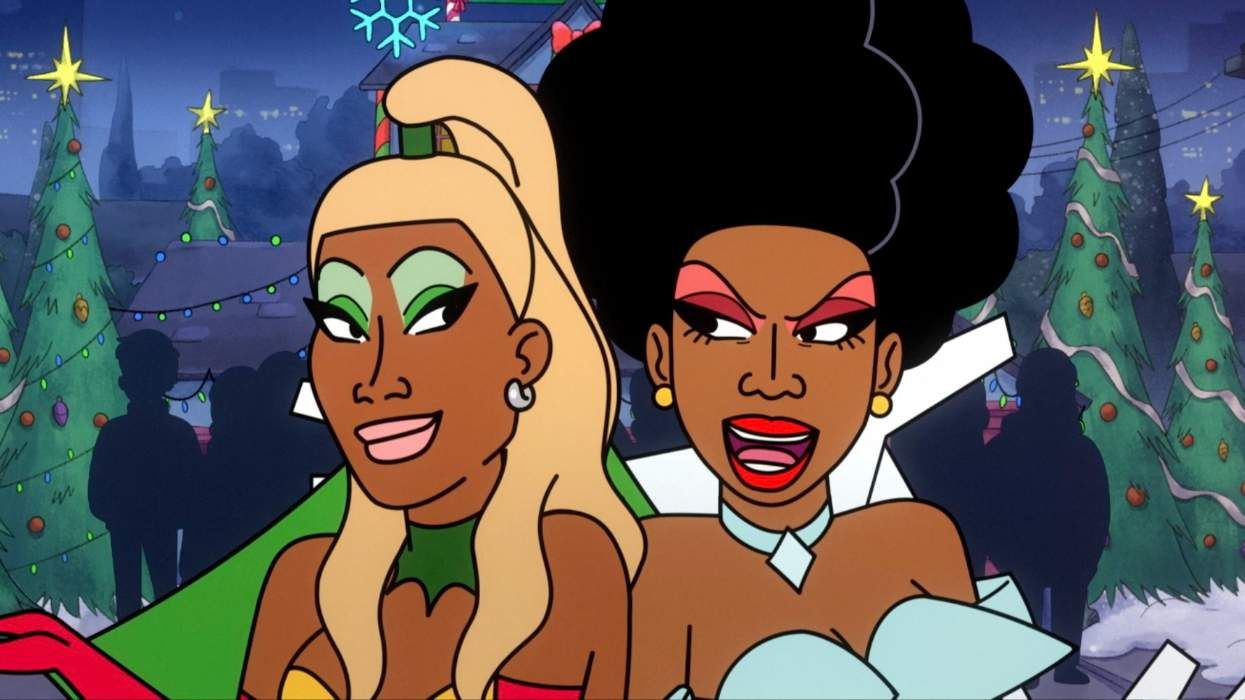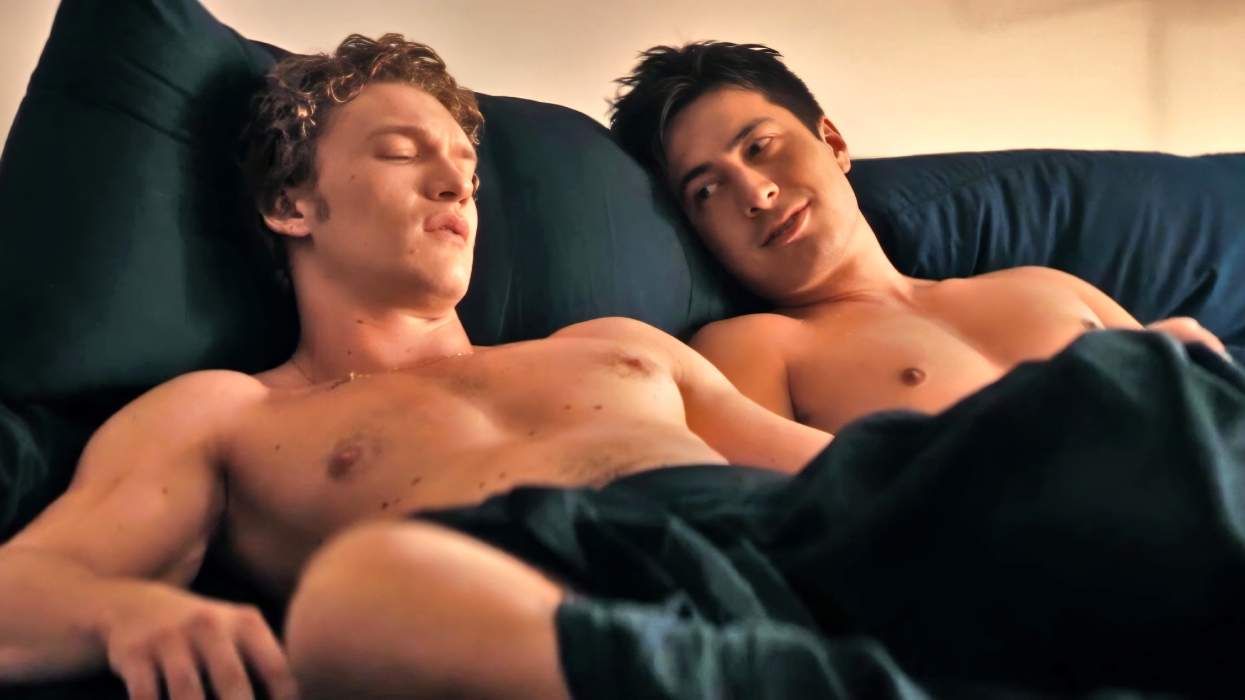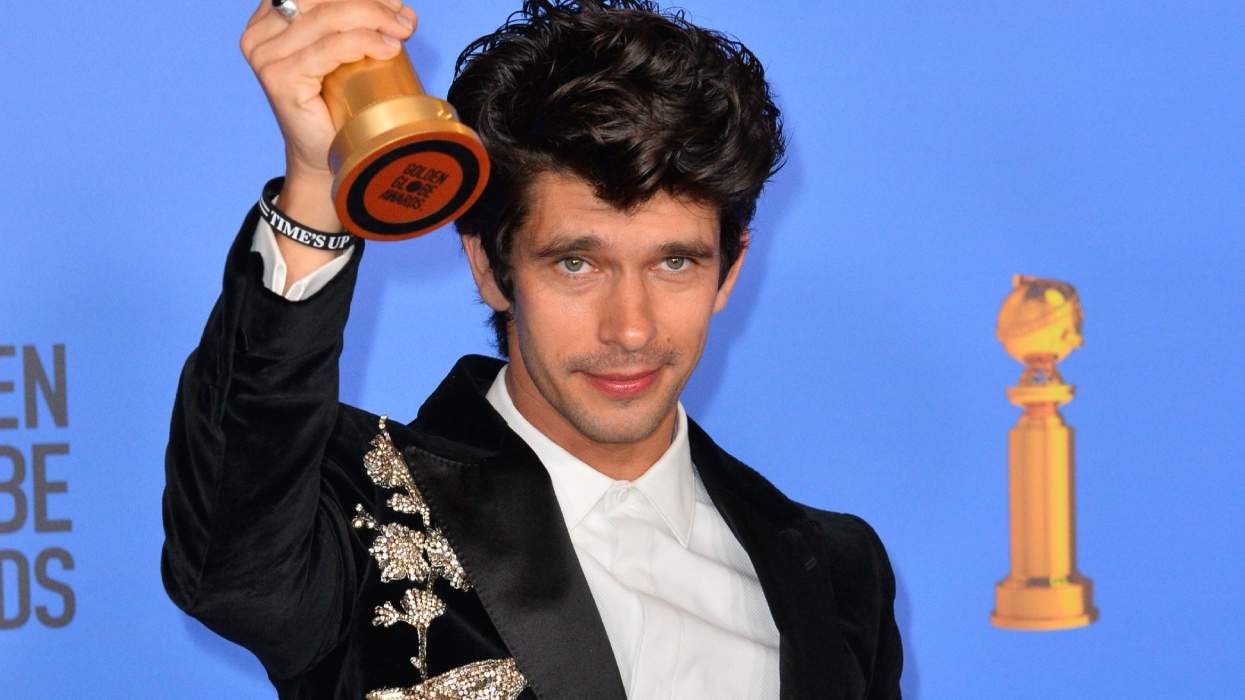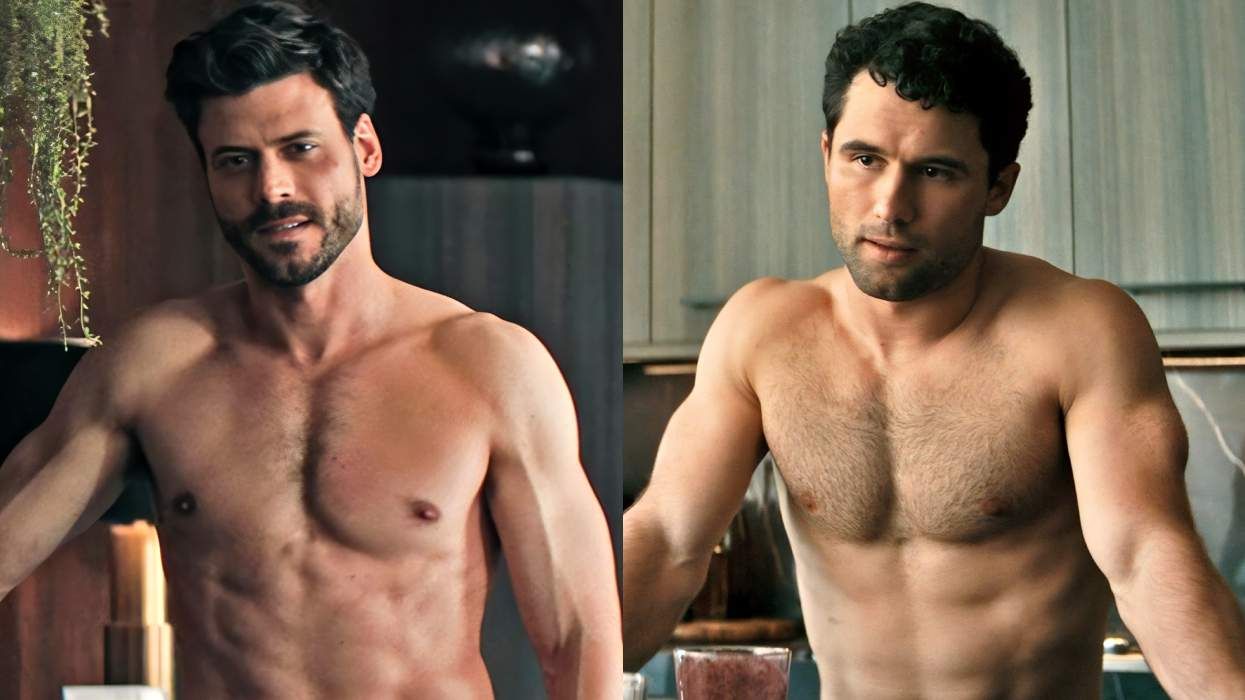Unicornland, as creator Lucy Gillespie explains, is chiefly a love story, and one we'd argue is a fairly unconventional one. Unlike the title of the new web series may suggest, the show is not a fantastical fairytale--in fact, it's a deeply realistic and empathetic portrayal of life post-divorce. The title of the show plays off the queer term, "Unicorn," commonly known in the poly community as a bisexual woman who dates couples.
After her divorce at age 26, Unicornland's protagonist Annie begins exploring her sexuality as an aspiring unicorn. Each episode features Annie with a new couple, showcasing the good, the bad, the awkward and the ugly. But most of all, we get an intimate glimpse into the life of Annie, finding herself by breaking out of who she thought she was. Ultimately, Unicornland is about learning to fall in love with not merely existing, but living.
OUT talked with the show's delightfully down-to-earth creator Lucy Gillespie about her experience in the New York kink scene, her artistic process and the importance of honesty and integrity, whether you're making a TV show or embarking on a new relationship. Watch the full series, here.
OUT: What initially inspired this project?
Lucy Gillespie: I got married pretty young for a New York artist. I was 26 and my ex-husband and I met in a theater program when we were 22, and we moved to New York together. We sort of supported each other when we were broke and we weren't that great of a couple, but neither of us had resources and both of us prioritized work over exploring personalities and sex. I felt very strongly that to be slutty--you know to sleep around, be promiscuous, explore sexuality--was a negative thing. I was very detrimental about friends of mine who were doing that and mistrustful of them and just sort of not at all sex positive. I got married through that mindset.
Then a few months into my marriage, I got into a residency program called "MacDowell" and while I was on the residency, realized that I'm an artist and that I've been looking at life through these very small, narrow-minded, judgmental glasses--that if I was going to go through life judging other people and assuming that experiences I never had were not for me and were negative, then I would not be a very good artist. I got home from that residency and said to [my ex] that I wanted to try some new things. I didn't explicitly say I wanted to be in an open relationship--what I said at the time was I [wanted to] club, do molly, have more fun and not always feel like the world is out to get us--to not just spend all our time working, hating the world and being short of money.
So we spent about 3 months going back and forth on the same line, then ultimately I left him and really wanted to dive into that world. I had a friend who was in a fetish scene and she invited me to my first fetish party.
What was that experience like?
It was in a pretty dull midtown office loft--one with one of those service elevators. We opened the door and there was like a 5 foot 2,200-pound woman wearing nothing but mardi gras beads and this huge smile on her face. I was wearing an Ann Taylor cocktail dress [and] J. Crew shoes, and my jaw dropped to the floor. There was this woman who was in a geisha outfit [doing] this incredibly intense strip tease that then involved stabbing herself and bleeding all over the floor. There was all this flogging and candle wax, [but] there wasn't sex. Mini cheesecakes were being handed out and I'm a sucker for that.
Halfway through the party I was like, "I need to get my money's worth," so I got rid of my dress and grabbed the first guy I saw who was flogging someone and I said, "Do that to me." He did it and ended up becoming my boyfriend for the next 2.5 years. He was pretty involved in the scene, so he took me to a lot of other parties. At the time I was also in graduate school. I'd always worked hard to be the smart girl, and I just found so much more richness to life. I also loved people much more fiercely and my relationships were strengthened just by my experience of people getting their freak on and being around them.
At what point did you begin developing Unicornland?
The idea for Unicornland came when I had finished grad school--I'd written a script throughout grad school that incorporated elements of this world and a lot of my cohort were really judgmental. It was like it was more realistic to write about aliens and zombies, than it was to write about polyamorous relationships or not being a lesbian, but [still] dating a woman. I found that so strange, especially because my grad school was in Manhattan at NYU, and I feel like if anyone is gonna be non-judgmental, it would be there.
I knew I wanted to write something that was an introduction to that world, and I came up with Unicornland as a sort of Alice in Wonderland where she's this very innocent, sort of vanilla, kind of clumsy person, who's very sweet and well-intentioned, but she has no cunt-power. She's not in control of herself. It was going to be a novel and then I thought, "No, that's absurd, I am a dramatic writer." So I went to Nick Leavens who'd directed plays. He'd never directed a web series--he was also going through a really wretched break-up. We got a drink and he said, "What's the one thing I should know about this project?" And I said, "Well, it's a love story." And that was the trigger he needed to decide to work on the project.
What was it like working with a majority female cast and crew?
I went to a girls high school, so I'm comfortable being around majority women. The cast and crew of Unicornland is great--for the most part it was very loving and then having an all female camera crew was great because the actresses, especially Laura who plays Annie, were so comfortable. We had robes and stuff for them to wear when they weren't doing the lingerie scenes, but she fine to wander around in lingerie--she didn't care. I feel like it's easier to talk to women. I find it easier to find a point of connection, find a common vocabulary and get on the same page. In terms of collaborating with our production designer, makeup artist and camera crew, that was easier. And then with the actors, the main thing that was really good was the diversity. A lot of our actors aren't used to getting roles like the ones they had in Unicornland and were very joyful to be on set, playing these roles that were so far from the typecast bullshit they were used to getting offered.
How did you go about working with the communities portrayed on the show?
For the episodes that have very specific groups involved, like the bondage episode, we had a consultant come in and work with the actors and directors, so we knew exactly what the etiquette was and what the techniques were and what certain signals meant. In terms of the community, I really was very open about it. The ethos of sex-positivity and the open relationship scene is that honesty and communication is the peak, pinnacle, most important thing. There was a moment in the beginning when I felt self-conscious about doing this and then decided to be really open about it with all my friends from the scene. As soon as I was open about it, people came forth and volunteered a lot.
I directly asked Andrew Sparksfire, the host of Hacienda, to collaborate and they were extraordinarily generous. They were going to be away one weekend [and] said we could stay in the house the whole weekend, and then we ended up filming on a different weekend, but they're the hosts. So in episode 8, they're the couple you see saying, "Welcome to Hacienda"--those are the literal hosts of that party. And there are a few people in that party scene who are very present in that world.
Sticking with the premise of integrity and honesty, and by working and trying to show that I was doing this right, I wasn't showing the scene as this fucked up, stupid, crazy place--I also wasn't deifying it and idealizing it. I was trying to be as realistic as possible about the journey of this young, naive woman and the pitfalls she makes and the sanctuary that she finds.
Many feminists struggle with portraying female desire in a way that is sexual, but doesn't cater to the male gaze. How did you approach the depiction of Annie's desire?
In my head I was like, "This will be just acting." I didn't realize they'd be straight up fucking on screen. A lot of the female actors we reached out to said "no" because they weren't comfortable with being represented in that way. I guess one is just used to the male gaze--one assumes that if there's a scene involving sex, that it's gratuitous and for men's pleasure.
There were a lot of emails sent between actors that we knew we really loved of us saying, "Give us a second chance because this project is not what you think it is." And there were some people who, when I emailed a second time, they said, "You hit the nail on the head, that's exactly what my fear was, I just want to make sure that I'm not going to be taken advantage of." Or they'd say something like, "I'm having issues with my sexuality right now and don't know if I'd feel comfortable playing this role."
In terms of avoiding the male gaze, the biggest decision we made was hiring a female DP. So we literally have a female gaze. Arina [Bleiman] is an incredibly talented cinematographer. When I watched her reel, I was floored by it. She creates such emotional footage with a sense of humor to it. She was very in tune with the actresses and nick is also a very attuned director. We tried to drive it from the perspective of what Annie wants and made sure the story we told was about her desire. It's really about what she's getting out of this and why she's doing it.


